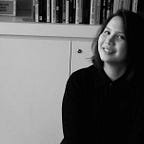the hardest part of mindfulness
is making the choice to be mindful.
what is mindfulness?
mindfulness a contemplative practice that has been taught for years through Buddhism. it is not a religious practice, although many religious people do practice it. mindfulness means to be present in the moment you are in and be fully aware of your emotions, body and surroundings. It’s about existing in a state of sheer “being”, without any “doing” or thinking.
“Mindfulness means paying attention in a particular way; On purpose, in the present moment, and non-judgmentally.” — Jon Kabat-Zinn
the practice of mindfulness can be broken down into three distinct habits — meditation, journaling and body scanning. Mediation can last from 3 minutes to 45 minutes, depending on the individual. Meditation helps one to exist unconditionally and to appreciate one’s place in the world. Journalling aids in understanding one’s emotions and in that gain clarity in corresponding behaviours during moments of ones life. Body scanning involves correlating an emotion to a physical sensation felt in one’s body which allows one to identify and compartmentalise negative feelings and react accordingly.
there are many scientific benefits to practicing mindfulness. So many that it is largely used by NICE (The National Institute of Health and Care excellence) and implemented in Google where employees are taught to “search inside yourself”. The most “prominent” benefit has to be that mindfulness makes (many) people happy, it is one of most recommended therapy for depression. Also, it decreases stress, chronic pain, etc. It improves leadership skills and decisions making.
mindfulness essentially is about taking back control of our lives by befriending the monsters in our heads and taking the world just as it is.
so why aren’t more people choosing to be happy?
being mindless has become a habit for many of us as we go about our daily routines. in order for our brain to register another way of operating, we need to fundamentally snap out of our old habit — a habit of constant “doing”, having a life on autopilot. Most people are stuck in a whirlpool of consistently trying to meet life’s demands of career, family and life in general… so much that we lose ourselves and forget what we were even searching for. Every once in a while, it’ll be nice to be able to return to the state to which we came into existence of just “being”, making our needs our core focus. Or to be engulfed by immense curiosity, wondering and reliance. As ridiculous as it sounds, most of us are trained through our growing up years to mentally question “what’s next…” or “what if…”. We want to be constantly doing something… fulfilling some non-existant purpose. And yet to be present without motion or thoughts seems like a complete waste of time and lacking meaning.
To move beyond just “doing”, it requires us to actively want to break free from our autopilot cycle and get into the whole empty our mind movement, preferably a few times a day, every day of the week. we also need to document our grateful moments and yet picking up a pen can be so difficult, however therapeutic it is. realistically, even the though of finding space and time to virtually scan one’s body is uncomfortable, let alone doing the act itself. the road to happiness is paved with discomfort, resistance and repetition that many of us honestly don’t have time for.
but we don’t have to forever lost.
thankfully, the greatest hurdle for change is the choice in itself. self-management can be daunting for many and it is always gonna be easier to choose the easy way out but when we have decided that we want the possibility of higher productivity, increased creativity and better relationships, this path becomes less challenging. with this simple focus in mind, the journey often becomes more bearable. good habits begins with intentions, followed through with careful planning and formed through proper prompts and incentivised by rewards and celebrations of small wins. it is a self-sustaining cycle that is worth striving towards. self-forgiveness is one of the things I find most useful for me to let things go and just simply start over — a hundred small sprints should be more calorie burning than a single marathon right?
so here’s to choosing to start over.
